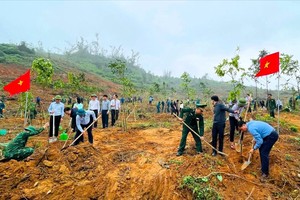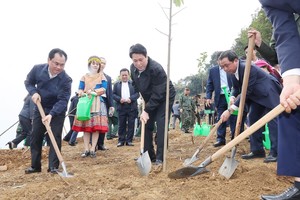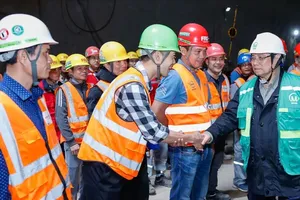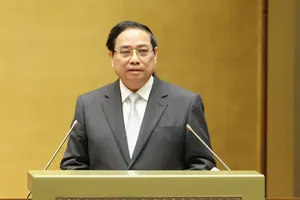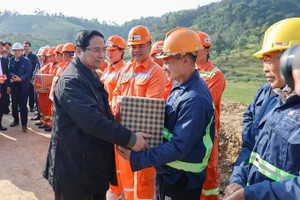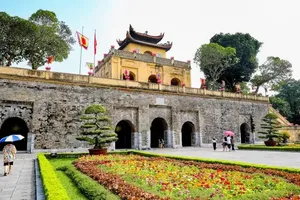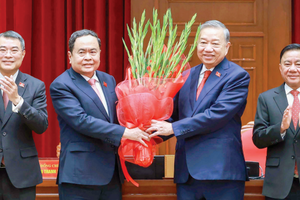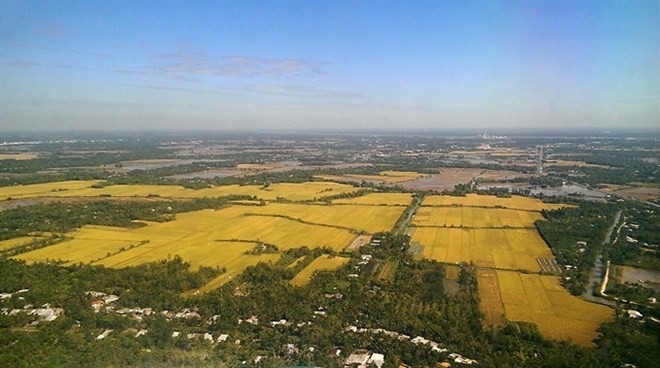
The Ministry of Natural Resources and Environment (MONRE) said at a recent conference that the public will also be able to access the database.
The moving of land records from paper to digital format is part of Vietnam’s e-government programme, signifying the Vietnamese Government’s latest attempt to catch up with the digital age and the advent of the fourth industrial revolution.
The land database is not just an archive of information, it will also serve as a crucial tool for State management and satisfy the demands to access land information as well as land policies of all organisations, businesses and the public in a transparent, objective and convenient manner.
The land database would also serve to make sure that efforts to reform administrative procedures by various ministries and State agencies – especially between the environment ministry, tax and customs bureaus – will be conducted in sync with each other.
Therefore, aside from consolidating land-related policies and legal frameworks, as well as planning and financial tools, the modernisation of the cadastral document system, as well as building the land database and national land information system are top priorities on the ministry’s upcoming agenda, said MONRE Minister Tran Hong Ha.
Ha said that in addition to initial investment from the State, in order to speed up the process, all resources from society – including both foreign and domestic tech companies working in service and IT infrastructure fields – will be mobilised under various models including Build-Transfer (BT) and Build-Operate-Transfer (BOT) to make sure that the database can cover all areas and be accessed with ease from everywhere in the country, as the ministry aims towards “effective socialisation of the currently State-managed land information provision service.”
At the conference, experts and businesses discussed optimal ways to build the land database, with user experience remaining among the top concerns – how to make the information portal such that even those without advanced knowledge of IT could easily browse the portal and make use of the service.
Dao Trung Chinh, deputy director general of the General Department of Land Administration (GDLA) under MONRE, said that the Government and the ministry itself has issued several legal frameworks providing details on the building of national land database and land information system. In addition, the ministry is submitting to the Government for review two decrees on land e-transactions and on regulations for the building, operating, and use of the land information system, as well as other accompanying circulars to help clarify the decrees.
According to Chinh, the deployment of the land information system must be consistent across all 63 municipalities and provinces in the country. The technology must also be transferred to land registration offices in these localities to ensure full exploitation of the product, he added.
The moving of land records from paper to digital format is part of Vietnam’s e-government programme, signifying the Vietnamese Government’s latest attempt to catch up with the digital age and the advent of the fourth industrial revolution.
The land database is not just an archive of information, it will also serve as a crucial tool for State management and satisfy the demands to access land information as well as land policies of all organisations, businesses and the public in a transparent, objective and convenient manner.
The land database would also serve to make sure that efforts to reform administrative procedures by various ministries and State agencies – especially between the environment ministry, tax and customs bureaus – will be conducted in sync with each other.
Therefore, aside from consolidating land-related policies and legal frameworks, as well as planning and financial tools, the modernisation of the cadastral document system, as well as building the land database and national land information system are top priorities on the ministry’s upcoming agenda, said MONRE Minister Tran Hong Ha.
Ha said that in addition to initial investment from the State, in order to speed up the process, all resources from society – including both foreign and domestic tech companies working in service and IT infrastructure fields – will be mobilised under various models including Build-Transfer (BT) and Build-Operate-Transfer (BOT) to make sure that the database can cover all areas and be accessed with ease from everywhere in the country, as the ministry aims towards “effective socialisation of the currently State-managed land information provision service.”
At the conference, experts and businesses discussed optimal ways to build the land database, with user experience remaining among the top concerns – how to make the information portal such that even those without advanced knowledge of IT could easily browse the portal and make use of the service.
Dao Trung Chinh, deputy director general of the General Department of Land Administration (GDLA) under MONRE, said that the Government and the ministry itself has issued several legal frameworks providing details on the building of national land database and land information system. In addition, the ministry is submitting to the Government for review two decrees on land e-transactions and on regulations for the building, operating, and use of the land information system, as well as other accompanying circulars to help clarify the decrees.
According to Chinh, the deployment of the land information system must be consistent across all 63 municipalities and provinces in the country. The technology must also be transferred to land registration offices in these localities to ensure full exploitation of the product, he added.

